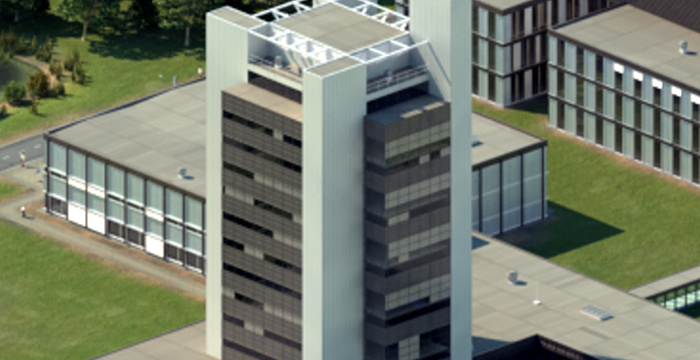Jan Reinoud Buitenweg received the M.Sc. degree in Electrical Engineering with Biomedical specialization from the University of Twente, Enschede, The Netherlands, in 1998. He received the Ph.D. degree from the same institution in 2001 after studying the electrical behaviour of the interface between cultured neurons and substrate embedded microelectrodes.
Presently, Jan R. Buitenweg is a Full Professor at the University of Twente, Chair of the department Biomedical Signals and Systems and principal investigator of the track Nociceptive and Somatosensory Processing within this department.
Expertise
Medicine and Dentistry
- Stimulus
- Spinal Cord Stimulation
- Patient
- Pain
- Threshold Potential
Neuroscience
- Evoked Potential
- Perception
- Stroke
Organisations
Ancillary activities
- NociTRACK BVCofounder/owner and statutory director
Jan R. Buitenweg is a Full Professor with the University of Twente and principal investigator of the research theme Nociceptive and Somatosensory Processing of the department of Biomedical Signals and Systems.
The major objective of this research theme Nociceptive and Somatosensory Processing is the development of neurotechnological, neurophysiological and psychophysical tools enabling clinical assessment, prevention and treatment of chronic pain disorders.
The research and valorisation projects in this theme focus on three neural engineering challenges of the chronic pain problem: (1) development of methods for controlled stimulation and conditioning of activity in pain related neural pathways, (2) development of methods for extended quantitative observation of functional changes of nociceptive subsystems and (3) development of mechanism based mathematical models for explaining and predicting experimental and clinical results, based on principles of neurostimulation and neurocomputational insights. All initiatives and activities are strongly driven by translational perspectives on health care innovation, in close collaboration with clinical partners, international industry and university spin-off companies
Publications
2025
2024
2023
Research profiles
Affiliated study programs
Courses academic year 2025/2026
Courses in the current academic year are added at the moment they are finalised in the Osiris system. Therefore it is possible that the list is not yet complete for the whole academic year.
- 191211208 - Internship EE
- 191211219 - Master Thesis Project
- 191211650 - Multi-Disciplinary Design Project
- 193640999 - Internship BME
- 193650999 - Masters Assignment
- 201300196 - Clinical Specialization Internship
- 201400269 - Capita Selecta BME EWI-BSS
- 201500222 - Technology for Health
- 201600187 - Individual Project
- 201600318 - Capita Selecta BME EWI-BSS
- 201900223 - Capita Selecta Electrical Engineering
- 202001162 - Bachelor Thesis EE
- 202001434 - Internship EMSYS
- 202300070 - Final Project EMSYS
- 202400283 - Project: The Balancing Brain
- 202400286 - Biomedical Control System
- 202400287 - Medical Electronics
- 202400318 - M12 BSc Assignment BMT
Courses academic year 2024/2025
- 191211208 - Internship EE
- 191211219 - Master Thesis Project
- 191211650 - Multi-Disciplinary Design Project
- 193640999 - Internship BME
- 193650999 - Masters Assignment
- 201300196 - Clinical Specialization Internship
- 201400269 - Capita Selecta BME EWI-BSS
- 201500222 - Technology for Health
- 201600187 - Individual Project
- 201600318 - Capita Selecta BME EWI-BSS
- 201900223 - Capita Selecta Electrical Engineering
- 202001162 - Bachelor Thesis EE
- 202001434 - Internship EMSYS
- 202300070 - Final Project EMSYS
- 202400283 - Project: The Balancing Brain
- 202400285 - Mechanics
- 202400286 - Biomedical Control System
- 202400287 - Medical Electronics
- 202400318 - M12 BSc Assignment BMT
The research and valorisation projects in this theme focus on three neural engineering challenges of the chronic pain problem: (1) development of methods for controlled stimulation and conditioning of activity in pain related neural pathways, (2) development of methods for extended quantitative observation of functional changes of nociceptive subsystems and (3) development of mechanism based mathematical models for explaining and predicting experimental and clinical results, based on principles of neurostimulation and neurocomputational insights. All initiatives and activities are strongly driven by translational perspectives on health care innovation, in close collaboration with clinical partners, international industry and university spin-off companies
Address

University of Twente
Horst Complex (building no. 20), room ZH213
De Horst 2
7522 LW Enschede
Netherlands
University of Twente
Horst Complex ZH213
P.O. Box 217
7500 AE Enschede
Netherlands